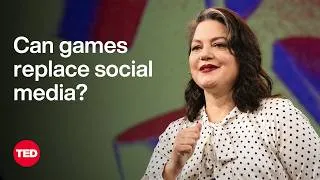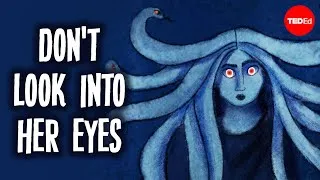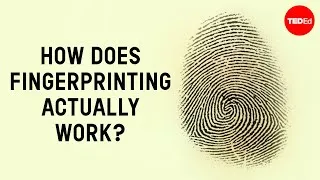Oxygen’s surprisingly complex journey through your body - Enda Butler
3,277,565 views ・ 2017-04-13
请双击下面的英文字幕来播放视频。
翻译人员: Owen Yu
校对人员: Lipeng Chen
00:07
You breathe in about 17,000 times per day.
0
7384
5440
你一天大概会呼吸17000次。
00:12
It's a process you rarely think about,
1
12824
2200
你很少会注意这个过程,
00:15
but behind the scenes, a huge coordinated
effort is playing out.
2
15024
5228
但在这些过程背后,
包含着巨大的、协调过的努力。
00:20
Your vital organs,
3
20252
1401
你至关重要的器官,
00:21
the gut,
4
21653
860
肠道、
00:22
brain,
5
22513
720
大脑、
00:23
bones,
6
23233
800
骨骼、
00:24
lungs,
7
24033
830
00:24
blood,
8
24863
722
肺、
血液、
00:25
and heart
9
25585
953
心脏,
00:26
work together to sustain your life
10
26538
2247
它们为了维持你的生命一起工作,
00:28
by delivering oxygen
to tissues throughout your body.
11
28785
4158
通过运输氧气到全身的各个组织。
00:32
Most of our cells need oxygen
12
32943
1840
我们身体的大多数细胞都需要氧气,
00:34
because it's one of the key ingredients
of aerobic respiration.
13
34783
4431
因为它是生物有氧呼吸的要素之一。
00:39
That's the process that produces
a molecule called ATP,
14
39214
4208
有氧呼吸能产生叫
三磷酸腺苷(ATP)的分子,
00:43
which our cells use to power their
many incredible functions.
15
43422
4135
细胞能使用这种分子
发挥出很多不可思议的功能。
00:47
But getting oxygen throughout our
bodies is a surprisingly difficult task.
16
47557
5508
但是,把氧气运送到全身是
一个困难出奇的任务。
00:53
Gas enters cells by diffusing in
from their surroundings.
17
53065
4190
气体通过扩散到周围来进入细胞。
00:57
And that only happens efficiently
over tiny distances.
18
57255
4611
当它们之间的距离很小时,
气体才能有效地扩散。
01:01
So for oxygen to reach the cells
within our bodies,
19
61866
3019
所以,氧气需要一个运输网络,
01:04
it needs a transportation network.
20
64885
2720
以抵达身体的各个细胞。
01:07
This is where our 20 trillion
red blood cells come in.
21
67605
4300
这就是我们体内20万亿红细胞的功能。
01:11
Each one contains about 270 million
oxygen-binding molecules of hemoglobin,
22
71905
6539
每个红细胞含有2亿7千万血红蛋白,
01:18
which is what gives blood its scarlet hue.
23
78444
3530
这些蛋白是导致血液是深红色的原因。
01:21
To make these cells, the body uses
raw materials
24
81974
3044
我们的身体使用从食物中摄取的原材料
01:25
that become available from
the food we eat.
25
85018
3377
来制造这些细胞。
01:28
So in some ways, you could say
that oxygen's journey through the body
26
88395
3880
所以,从某种程度上,氧气在我们身体内的旅行,
01:32
really begins in the gut.
27
92275
2642
是从肠道开始的。
01:34
Here, in an amazing display of mechanical
and chemical digestion,
28
94917
3974
这是一个关于物理消化和化学消化的展示,
01:38
food gets broken down into
its smallest elements,
29
98891
3605
食物被分解成最小的元素,
01:42
like iron, the building block
of hemoglobin.
30
102496
3421
就像铁,血红蛋白的基本材料。
01:45
Iron is carried through
the cardiovascular system
31
105917
2719
铁元素通过心血管系统
01:48
to the body's hematopoietic tissue.
32
108636
3140
被运送到体内的造血组织。
01:51
This tissue is the birthplace
of red blood cells,
33
111776
3150
这些组织是红细胞的出生地,
01:54
and it can be found enclosed within
our bone marrow cavities.
34
114926
4220
这些组织处于骨骼的骨髓腔内。
01:59
The kidneys regulate
our levels of red blood cells
35
119146
2602
肾脏通过释放红细胞生成素
02:01
through the release of erythropoietin,
36
121748
2740
来控制体内的红细胞水平,
02:04
a hormone which causes marrow
to increase production.
37
124488
4039
红细胞生成素是一种可以促进
骨髓产生红细胞的激素。
02:08
Our bodies churn out roughly 2.5 million
red blood cells per second,
38
128527
5150
每秒钟,我们的身体会调动250万红细胞,
02:13
a number equivalent to the entire
population of Paris,
39
133677
4119
大概是整个巴黎人口的数量,
02:17
so that oxygen that makes it to the lungs
will have ample transportation.
40
137796
4832
来充分地运输肺部氧气。
02:22
But before oxygen
can even reach the lungs,
41
142628
2619
但是,在氧气到达肺部之前,
02:25
the brain needs to get involved.
42
145247
2151
大脑需要参与这个过程。
02:27
The brainstem initiates breathing
43
147398
2016
脑干会通过神经系统发送讯号
02:29
by sending a message
through your nervous system,
44
149414
2584
到横膈膜和肋骨肌肉,
02:31
all the way to muscles
of the diaphragm and ribs.
45
151998
3570
从而开始呼吸。
02:35
This causes them to contract,
46
155568
2151
这会使肌肉收缩,
02:37
thus increasing the space
inside the rib cage,
47
157719
3109
从而扩大胸腔内的空间,
02:40
which allows the lungs to expand.
48
160828
2889
导致肺部扩张。
02:43
That expansion drops your lungs
internal air pressure,
49
163717
3241
扩张会降低肺部空气压力,
02:46
making air rush in.
50
166958
2460
从而让空气进入到肺部。
02:49
It's tempting to think of our lungs
as two big balloons,
51
169418
3151
我们可以将肺部想象成两个大气球,
02:52
but they're actually a lot more
complicated than that.
52
172569
3359
但是实际过程却复杂得多。
02:55
Here's why.
53
175928
1170
原因是:
02:57
The red blood cells in the vessels
within your lungs
54
177098
2540
肺部血管内的红细胞
02:59
can only pick up oxygen molecules
that are very close to them.
55
179638
4945
只能取得离它们非常近的氧气分子。
03:04
If our lungs were shaped like balloons,
56
184583
2095
如果我们的肺部是气球形状的话,
03:06
air that was not in direct contact
with the balloon's inner surface
57
186678
3951
未能和气球内表面直接接触的空气
03:10
couldn't diffuse through.
58
190629
3040
不能扩散出去。
03:13
Luckily, our lungs' architecture ensures
that very little oxygen is wasted.
59
193669
6090
幸运的是,我们的肺部结构保证了氧气不被浪费。
03:19
Their interior is divided into
hundreds of millions
60
199759
2662
它们的内部被分为了好几亿个
03:22
of miniature balloon-like projections
called alveoli
61
202421
4007
叫做肺泡的气球状小分区,
03:26
that dramatically increase
the contact area
62
206428
2322
它们能使接触面积
03:28
to somewhere around 100 square meters.
63
208750
4520
增加到大概100平米。
03:33
The alveolar walls are made of
extremely thin flat cells
64
213270
4180
肺泡墙是由极细的扁平细胞组成的,
03:37
that are surrounded by capillaries.
65
217450
3021
它们被毛细血管包围着。
03:40
Together, the alveolar wall and
capillaries make a two-cell thick membrane
66
220471
5120
总的来说,肺泡墙和毛细血管
组成了2个细胞厚度的薄膜,
03:45
that brings blood and oxygen close enough
for diffusion.
67
225591
4389
它们能拉近血液和氧气之间的距离
到能进行气体扩散的程度。
03:49
These oxygen-enriched cells are then
carried from the lungs
68
229980
3325
然后,这些充满氧气的细胞会被
03:53
through the cardiovascular network,
69
233305
2405
血管数量巨大的心血管系统
03:55
a massive collection of blood vessels
that reaches every cell in the body.
70
235710
4630
从肺部运送到全身的各个细胞。
04:00
If we laid this system out
end to end in a straight line,
71
240340
3370
如果我们把整个系统拉伸成一条直线,
04:03
the vessels would wrap around the Earth
several times.
72
243710
4131
这些血管能绕地球好几圈。
04:07
Propelling red blood cells
through this extensive network
73
247841
3329
在这个巨大的系统中推动红细胞
04:11
requires a pretty powerful pump,
74
251170
2542
需要一个非常强大的泵,
04:13
and that's where your heart comes in.
75
253712
2430
这就是心脏的作用。
04:16
The human heart pumps an average
of about 100,000 times per day,
76
256142
4829
人类的心脏一天会跳动平均十万次左右,
04:20
and it's the powerhouse that ultimately
gets oxygen where it needs to go,
77
260971
4840
它是一个能把氧气运送到指定地点的能源中心,
04:25
completing the body's team effort.
78
265811
2901
从而让人体能够运作。
04:28
Just think - this entire complex system
is built around the delivery
79
268712
4360
想像一下,整个复杂的系统都是围绕着
04:33
of tiny molecules of oxygen.
80
273072
3220
氧气分子的运送系统而建造的。
04:36
If just one part malfunctioned,
so would we.
81
276292
3809
如果有一个部位停止运作,
整个人体也会停止工作。
04:40
Breathe in.
82
280101
1192
吸进空气。
04:41
Your gut, brain, bones,
lungs, blood, and heart
83
281293
3280
你的肠道、大脑、骨骼、肺、血液、心脏
04:44
are continuing their incredible act
of coordination that keeps you alive.
84
284573
5420
会继续这些不可思议的
协调工作来维持你的生命。
04:49
Breathe out.
85
289993
1660
呼出空气。
New videos
Original video on YouTube.com
关于本网站
这个网站将向你介绍对学习英语有用的YouTube视频。你将看到来自世界各地的一流教师教授的英语课程。双击每个视频页面上显示的英文字幕,即可从那里播放视频。字幕会随着视频的播放而同步滚动。如果你有任何意见或要求,请使用此联系表与我们联系。







